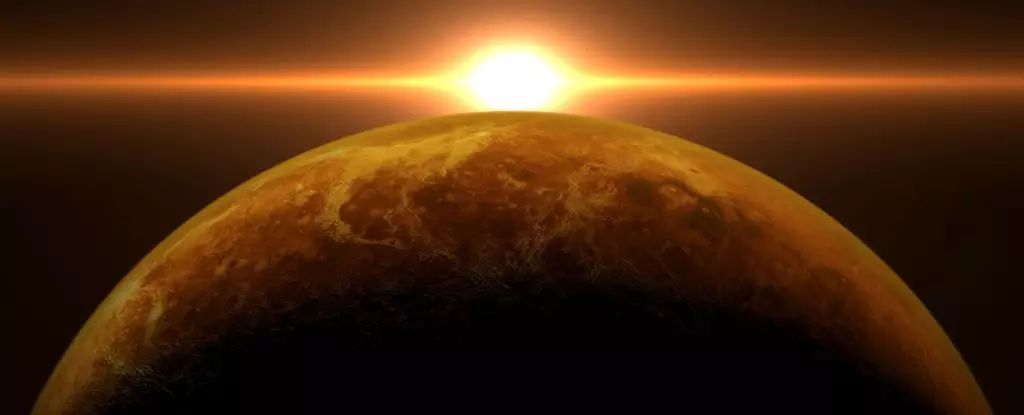For years, Venus has held a notorious reputation as an example of what can go wrong for a planet that once seemed capable of supporting life. Commonly referred to as Earth’s “sister planet,” it shares several physical characteristics with our world, including size and mineral composition. However, new insights from scientific research paint a different picture of Venus’s past and present. While the prevailing narrative suggested that Venus might once have had a lush atmosphere filled with liquid oceans, recent findings challenge this assertion, revealing that the planet might never have experienced the conditions necessary for such habitability.
The conventional wisdom posited that Venus was once similar to Earth, perhaps even hosting oceans teeming with life before an unforgiving climate transformation made it the scorched wasteland we see today. However, astronomer Tereza Constantinou and her team from the University of Cambridge argue that Venus’s atmosphere has always been exceptionally dry, making the existence of liquid oceans highly unlikely. Through meticulous analysis of the atmospheric components and processes, researchers concluded that there is little to no evidence supporting the idea of a once-habitable Venus.
Central to understanding Venus’s uninhabitable status lies in deciphering the composition and behavior of its atmosphere. Constantinou and her colleagues conducted a comprehensive study focusing on the rates at which water, carbon dioxide, and carbonyl sulfide are consumed and must be restored. Their calculations suggest that any initial traces of water on Venus would have been insufficient, as the planet’s geological processes failed to replenish its atmosphere with enough water vapor, leading to an inherently dry interior.
The findings reveal that volcanic gases from Venus’s interior consist of only about six percent steam. This stands in stark contrast to Earth, where volcanic emissions are largely dominated by water vapor due to our planet’s water-rich environment. Such climatic intricacies underline that while water may have briefly existed, it was never retained long enough to form bodies of liquid—essentially condemning Venus to a relentless state of aridity.
The implications of this research extend beyond understanding Venus. By unraveling the history of habitability—or the lack thereof—on our neighboring planet, scientists can draw parallels to exoplanets that share similar characteristics. Understanding why Venus failed as a life-sustaining world provides valuable insights into the conditions required for life elsewhere in the universe.
If Venus was never a candidate for habitability, it raises questions concerning other planets that present Earth-like features. Constantinou emphasizes that the absence of water has significant consequences for planetary science. This could make Venus-like planets less appealing in the ongoing search for extraterrestrial life, as they may lack the necessary conditions for sustaining life as we understand it.
It’s essential to differentiate between the delivery of water to a planet and the capacity to retain it. While other celestial bodies, including Mars, have experienced periods where water delivery mechanisms contributed to surface water, Venus appears to have lacked the ability to maintain liquid water due to its extreme atmospheric conditions.
Research has shown that any steam present in Venus’s past underwent photodissociation, a process where water molecules are broken down into hydrogen and oxygen. Over billions of years, the lighter hydrogen simply escaped into space, leaving behind a dry, inhospitable atmosphere devoid of significant water reserves. This crucial distinction undermines the notion that Venus experienced a formative period suitable for life.
Nevertheless, the research surrounding Venus opens up new avenues of thought regarding life in extraterrestrial environments. If future explorations discover microbial life existing in the planet’s harsh atmosphere, it could prompt an entirely new set of hypotheses about life’s potential resilience under extreme conditions—potentially rewriting our understanding of biology.
As our exploration of the cosmos continues to evolve, the study of Venus serves as a critical touchpoint. While it may be a sobering reminder of what happens when a planet fails to develop a hospitable environment, it ultimately expands our perspective on habitability and life’s potential elsewhere in the universe. The quest to understand Venus may offer profound insights, allowing scientists to continue refining their search for life beyond our own blue planet.


Leave a Reply